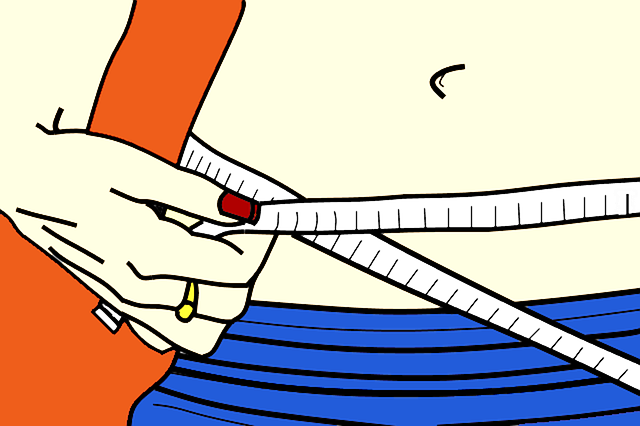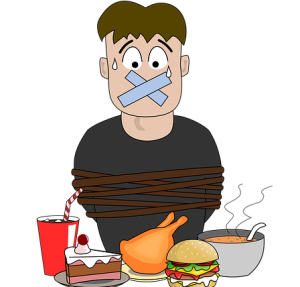Starting a weight loss journey can be both thrilling and challenging. The key is to focus on safe, sustainable practices that promote long-term health.
The Importance of Safe Weight Loss
Health Risks of Rapid Weight Loss
Rapid weight loss might seem tempting, but it can lead to serious health issues. Losing weight too quickly can cause muscle loss, nutritional deficiencies, gallstones, and even heart problems.
Benefits of Gradual Weight Loss
On the other hand, gradual weight loss is more sustainable and healthier. It allows your body to adjust to changes, reducing the risk of adverse effects and promoting lasting results.
Setting Realistic Goals
Factors Affecting Weight Loss
Weight loss isn’t one-size-fits-all. Factors such as age, gender, genetics, and current weight all play a role. Understanding these factors can help set achievable and personalized weight loss goals.
Personalized Weight Loss Plans
Creating a plan tailored to your lifestyle and preferences increases your chances of success. Consulting with healthcare professionals can provide guidance on creating a plan that fits your individual needs.
The 1-2 Pounds per Week Guideline
Experts recommend aiming to lose 1-2 pounds per week. This rate is considered safe and sustainable, translating to about 4-8 pounds in a month.
Caloric Deficit for Weight Loss
To lose weight, you must consume fewer calories than your body burns, creating a caloric deficit.A deficit of 500-1000 calories per day is generally sufficient for losing 1-2 pounds per week.
Role of Exercise in Weight Loss
Incorporating physical activity can boost weight loss by increasing the number of calories you burn. Combining a healthy diet with regular exercise maximizes your results and improves overall health.
Calculating Monthly Weight Loss
Safe Monthly Weight Loss Range
Based on the recommended rate, you can safely lose 4-8 pounds in a month. However, individual results may vary depending on various factors like metabolism and adherence to the plan.
Individual Variations
Keep in mind that everyone’s body responds differently to weight loss efforts. Factors such as muscle mass, hormonal balance, and starting weight can influence how quickly you lose weight.
Strategies for Safe Weight Loss
Healthy Eating Habits
Balanced Diet
A balanced diet includes a mix of macronutrients—proteins, fats, and carbohydrates. Eating a variety of foods ensures you get the nutrients your body needs to function optimally.
Importance of Macronutrients
Proteins support muscle repair and growth, fats are essential for hormone production, and carbohydrates provide energy. Balancing these macronutrients can help you feel satisfied and energized.
Portion Control and Mindful Eating
Controlling portion sizes and practicing mindful eating can prevent overeating. Pay attention to hunger cues and avoid distractions while eating to better regulate food intake.
Benefits of Drinking Water
Staying hydrated is crucial for overall health and can aid in weight loss. Drinking water before meals can help manage your appetite and prevent overeating.
Reducing Sugary Beverages
Cutting back on sugary drinks like sodas and juices can significantly reduce your calorie intake. Opt for water, herbal teas, or other low-calorie beverages to stay hydrated without extra calories.
Physical Activity
Cardiovascular Exercise
Cardio exercises like running, cycling, and swimming help burn calories and improve heart health. Aim for at least 150 minutes of moderate-intensity cardio per week.
Strength Training
Strength training builds muscle, which can boost your metabolism. Incorporate resistance exercises like weightlifting or bodyweight exercises at least two days a week.
Creating an Exercise Routine
Having a consistent exercise routine helps build healthy habits. Schedule your workouts like appointments to ensure you stick to them.
Avoiding Workout Plateaus
Mixing up your workouts can prevent plateaus and keep you motivated. Try new activities or vary your routine to challenge different muscle groups and keep things interesting.
Tracking Weight Loss
Using a Food Diary
Keeping a food diary can help you stay accountable and aware of your eating habits. Food tracking apps such as MyFitnessPal or Lose It! can make this process easier.
Benefits of Food Journals
Food journals can reveal patterns and triggers that affect your eating behavior. They can help identify areas for improvement and celebrate your successes.
Best Practices for Weighing Yourself
Weigh yourself at the same time each day, preferably in the morning, to track progress consistently. Remember that weight can fluctuate daily due to various factors, so look for trends over time rather than day-to-day changes.
Other Metrics to Track
In addition to weight, track other metrics like body measurements, clothing fit, and energy levels. These can provide a more comprehensive view of your progress and keep you motivated.
Understanding Plateaus
Causes of Weight Loss Plateaus
Plateaus can occur when your body adapts to a new weight or exercise routine. Metabolic adaptation and psychological factors can both contribute to stalled progress.
Psychological Factors
Mental barriers and stress can impact your weight loss journey. Staying positive and finding support from friends, family, or support groups can help overcome these challenges.
Overcoming Plateaus
Adjusting Diet and Exercise
Tweaking your diet and exercise routine can help break through plateaus. Try varying your caloric intake or incorporating new exercises to challenge your body.
Staying Motivated
Focus on non-scale victories and remember why you started. Setting new goals and celebrating small achievements can keep you motivated during tough times.
Conclusion
Achieving and maintaining weight loss goals requires a balanced approach of healthy eating, regular physical activity, and mindful habits. By setting realistic goals and using sustainable strategies, you can safely lose weight and enjoy long-term success.
FAQs
How much weight can I safely lose in a month?
Safely, you can aim to lose 4-8 pounds in a month, following the 1-2 pounds per week guideline.
What is the best diet for weight loss?
The best diet is one that is balanced, includes a variety of nutrients, and fits your lifestyle and preferences.
How often should I exercise to lose weight?
Aim for at least 150 minutes of moderate-intensity cardio and two days of strength training per week.
Can drinking water help with weight loss?
Yes, staying hydrated can help control appetite and prevent overeating, aiding in weight loss.
When should I consult a doctor for severe muscle soreness?
If muscle soreness persists or is accompanied by severe symptoms, it’s best to consult a healthcare professional.




